Don't wanna be here? Send us removal request.
Text
Your Jewish Home | Get in Contact
Our team is happy to help you with any questions or comments you may have. Please feel free to contact us by visiting our website or email [email protected]
#jewishprayers#prayerforeveryocassion#prayersformotivation#jewishdoorways#prayersfordifficulttime#jewish homeblessing#prayersfordifficulttimeinjewishtradition
0 notes
Text
Your Jewish Home | Get in Contact
Our team is happy to help you with any questions or comments you may have. Please feel free to contact us by visiting our website or email [email protected]
#jewishprayers#prayerforeveryocassion#prayersfordifficulttime#jewishdoorways#prayersformotivation#prayersfordifficulttimeinjewishtradition#jewish homeblessing
0 notes
Text
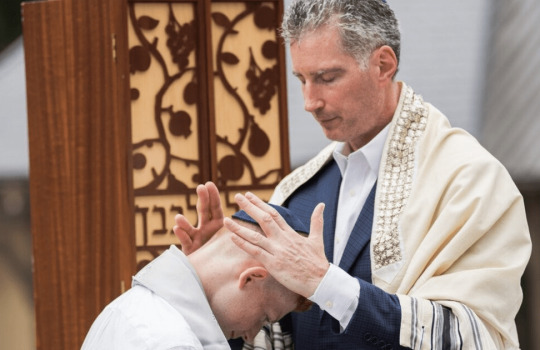
Jewish Doorways helps enhance your Jewish life cycle events and rituals through prayers, poems, psalms and/or songs for all ages and life special occasions. To know more visit: https://jewishdoorways.org/
0 notes
Text
Jewish Doorways helps enhance your Jewish life cycle events and rituals through prayers, poems, psalms and/or songs for all ages and life special occasions. To know more visit: https://jewishdoorways.org/
0 notes
Text

Jewish prayers and culture have been the cornerstone of Jewish success for centuries. The emphasis on education and intellectualism in Jewish culture has led to a community that values knowledge and critical thinking, which has translated into professional success. To know more visit: https://charlottewinter181.wixsite.com/jewishpath/post/why-are-jews-so-successful
0 notes
Text
0 notes
Text
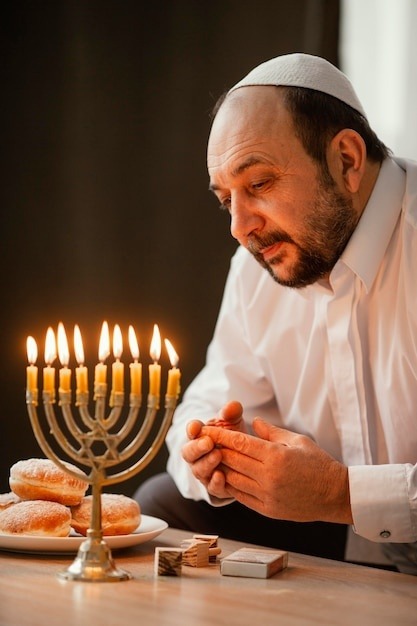
Should Jewish prayers be chanted instead of spoken?
Some argue that chanting adds a level of beauty and spirituality to the prayers, while others believe that spoken prayer is just as effective. In this essay, we will explore the reasons behind both viewpoints and provide some insight into the role of chanting in Jewish worship. To know more visit here: https://jewishdoorwaysprayers.blogspot.com/2023/04/should-jewish-prayers-be-chanted.html
0 notes
Text
Should Jewish prayers be chanted instead of spoken?
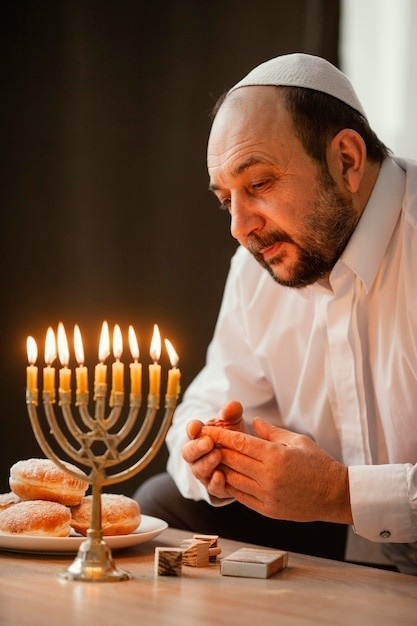
Some argue that chanting adds a level of beauty and spirituality to the prayers, while others believe that spoken prayer is just as effective. In this essay, we will explore the reasons behind both viewpoints and provide some insight into the role of chanting in Jewish worship. To know more visit here: https://jewishdoorwaysprayers.blogspot.com/2023/04/should-jewish-prayers-be-chanted.html
0 notes
Text
Should Jewish prayers be chanted instead of spoken?
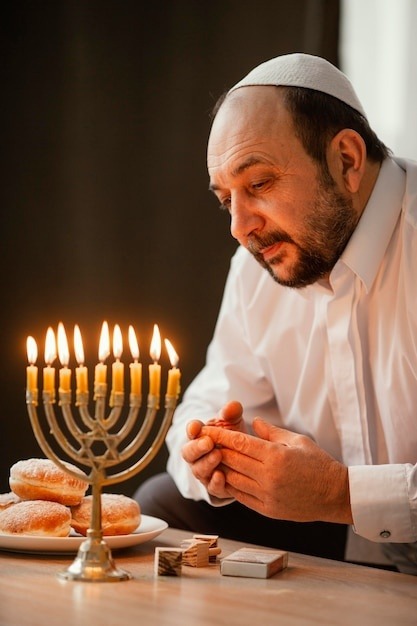
The use of chanting in Jewish prayers is a topic of much debate and discussion among scholars and practitioners of Judaism. Some argue that chanting adds a level of beauty and spirituality to the prayers, while others believe that spoken prayer is just as effective. In this essay, we will explore the reasons behind both viewpoints and provide some insight into the role of chanting in Jewish worship.
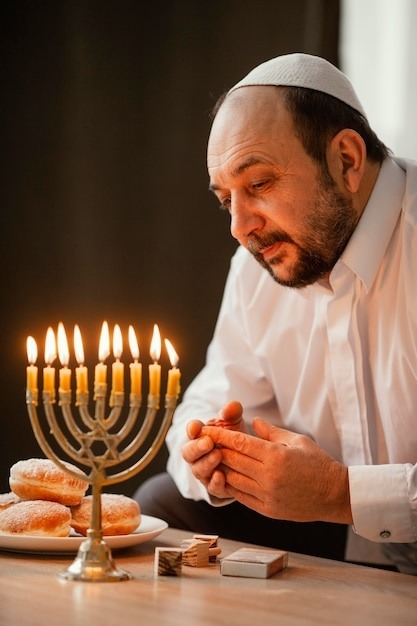
First, it is important to understand the history of chanting in Jewish worship. Chanting has been a part of Jewish worship since ancient times, with the use of cantillation (chanting of sacred texts) dating back to the time of the Second Temple. Cantillation was originally used to aid in the memorization of the Torah, but it eventually became a part of the worship experience itself. Over time, the use of cantillation expanded to include other parts of Jewish liturgy, such as the Psalms and the Prophets.
One argument in favor of chanting is that it adds a level of beauty and spirituality to the prayers. The use of melody and rhythm can help to enhance the emotional impact of the prayers and create a sense of connection between the worshipper and the Divine. Chanting can also help to create a sense of community among the worshippers, as they join together in singing the same melodies and rhythms.
Another argument in favor of chanting is that it helps to preserve the tradition of Jewish worship. The melodies and rhythms used in chanting have been passed down from generation to generation, and they are an important part of Jewish cultural heritage. By continuing to use chanting in Jewish worship, we are preserving a part of our history and passing it down to future generations.
However, there are also arguments against the use of chanting in Jewish worship. One argument is that chanting can sometimes distract from the meaning of the prayers. When the focus is on the melody and rhythm, it can be easy to lose sight of the words and their significance. Additionally, some people may find the use of chanting to be alienating or exclusionary, as it may require a level of musical ability that not everyone possesses.
Another argument against chanting is that it can be seen as unnecessary or even distracting. Some people believe that spoken prayer is just as effective as chanting, and that the use of melody and rhythm is simply an added layer that is not essential to the worship experience. In some cases, chanting can even be seen as a distraction or an impediment to prayer, as it can make it difficult for worshippers to focus on their own thoughts and feelings.
Ultimately, the decision to use chanting in Jewish worship is a personal one. Some people may find that chanting enhances their worship experience, while others may prefer to stick with spoken prayer. It is important to remember that there is no right or wrong way to pray, and that each individual should find the method that works best for them.
In addition, it is important to note that the use of chanting in Jewish worship is not universal. Different communities and traditions may have different approaches to chanting, and what is considered appropriate in one context may not be in another. It is important to respect the traditions and practices of different communities, and to approach the use of chanting with an open mind and a willingness to learn.
In conclusion, the use of chanting in Jewish worship is a topic of much debate and discussion. While some argue that chanting adds a level of beauty and spirituality to the prayers, others believe that spoken prayer is just as effective. Ultimately, the decision to use chanting is a personal one, and each individual should find the method that works best for them. However, it is important to respect the traditions and practices of different communities, and to approach the use of chanting with an open mind and a willingness to learn.
Journeys into Judaism
Unlike most every other religion, which only requires a declaration of faith, conversion to Judaism first requires study. Yet, the conversion process does not end with a test of knowledge but rather a confirmation that there has been a change of identity and a renewal of faith. The support of a mentor as well as family and friends is critical to the process. A celebration of the completion of the process is an uplifting tribute to the convert’s dedication and transformation.
To know more visit:
Life Events Made Meaningful With Jewish Traditions - Jewish Doorways
Jewish Doorways helps enhance your Jewish life cycle events and rituals through prayers, poems, psalms and/or songs for all ages and life special occasions.
0 notes
Text

What are the major Judaism conflicts in history?
Judaism has a rich and complex history that has been marked by many conflicts. Here are some of the major conflicts that have shaped the history of Judaism. Too know more visit here: https://jewishcultureupdates84042118.wordpress.com/2023/04/13/what-are-the-major-judaism-conflicts-in-history/
0 notes
Text
What are the major Judaism conflicts in history?

Judaism has a rich and complex history that has been marked by many conflicts. Here are some of the major conflicts that have shaped the history of Judaism. Too know more visit here: https://jewishcultureupdates84042118.wordpress.com/2023/04/13/what-are-the-major-judaism-conflicts-in-history/
0 notes
Text

What is the difference between Samaritans and Jews?
The Samaritans are a small community of people who live in Israel and the West Bank, and who trace their origins back to the ancient kingdom of Israel. They are believed to be the descendants of the ten tribes of Israel who were exiled by the Assyrian Empire in the 8th century BCE. Too know more visit here: https://jewishdoorwaysprayers.blogspot.com/2023/04/what-is-difference-between-samaritans.html
0 notes
Text

The Samaritans are a small community of people who live in Israel and the West Bank, and who trace their origins back to the ancient kingdom of Israel. They are believed to be the descendants of the ten tribes of Israel who were exiled by the Assyrian Empire in the 8th century BCE. Too know more visit here: https://jewishdoorwaysprayers.blogspot.com/2023/04/what-is-difference-between-samaritans.html
0 notes
Text
What is the difference between Samaritans and Jews?

The Samaritans and Jews are two distinct groups of people with a shared history and many cultural similarities, but with significant differences in their religious beliefs and practices. This essay will explore the similarities and differences between these two groups, including their histories, cultures, and beliefs.
The Samaritans are a small community of people who live in Israel and the West Bank, and who trace their origins back to the ancient kingdom of Israel. They are believed to be the descendants of the ten tribes of Israel who were exiled by the Assyrian Empire in the 8th century BCE. The Samaritans have their own distinct religious tradition, which is based on the ancient Israelite religion and the Samaritan Pentateuch, a version of the first five books of the Hebrew Bible that differs in some significant ways from the Jewish version.
The Jews, on the other hand, are a much larger and more diverse group of people who live all over the world. They trace their origins back to the ancient kingdom of Judah, which was also exiled by the Babylonian Empire in the 6th century BCE. The Jews have their own distinct religious tradition, which is based on the Hebrew Bible, the Talmud, and other rabbinic texts. Judaism has many different sects and denominations, each with its own beliefs and practices.
Despite their differences, the Samaritans and Jews share many cultural similarities. Both groups speak a form of Hebrew, although the Samaritan dialect is different from the Hebrew used by the Jews. Both groups have a deep reverence for the ancient Hebrew Bible, and many of the stories and characters in the Bible are central to the religious beliefs and practices of both groups. Both groups also share a deep connection to the land of Israel and the city of Jerusalem, which is considered holy by both Samaritans and Jews.
However, there are also many differences between the Samaritans and Jews, especially in their religious beliefs and practices. The Samaritans believe in one God, who is known by the name Yahweh, and they follow a version of the Ten Commandments that differs slightly from the Jewish version. They also have their own version of the first five books of the Hebrew Bible, which they believe to be the only true and accurate version of the text. The Samaritans do not accept the authority of the Talmud or other rabbinic texts, and they do not recognize the Jewish oral tradition or the authority of the rabbis.
The Jews, on the other hand, believe in one God, who is known by the name Yahweh, and they follow the Ten Commandments as they are written in the Hebrew Bible. They believe that the Hebrew Bible is the word of God, but they also recognize the authority of the Talmud and other rabbinic texts, which contain the interpretations and commentaries of Jewish scholars and rabbis. The Jews also have a rich oral tradition, which is known as the Mishnah and the Gemara, and which is considered to be an essential part of Jewish law and practice.
Another significant difference between the Samaritans and Jews is their religious practices. The Samaritans have their own distinct religious calendar, which is based on the lunar cycle and which includes many unique festivals and observances. They also have their own system of priesthood, which is descended from the ancient Levites and which is responsible for performing the religious rituals and ceremonies. The Samaritans place a great emphasis on the observance of the Sabbath and other holy days, and they have a strict set of dietary laws that govern what they can and cannot eat.
Despite their historical conflicts, however, there have also been periods of cooperation and mutual respect between the Samaritans and Jews. In the modern era, the Samaritans have been recognized as a distinct religious and cultural group, and have been granted official recognition and protection by the Israeli government. They have also been involved in various cooperative efforts with the Jewish community, including archaeological excavations, cultural exchanges, and interfaith dialogue.
In conclusion, the Samaritans and Jews are two distinct groups of people with a shared history and many cultural similarities, but with significant differences in their religious beliefs and practices. While both groups revere the ancient Hebrew Bible and have a deep connection to the land of Israel, the Samaritans have their own distinct religious tradition and follow a different version of the Pentateuch than the Jews. Additionally, the two groups have different religious practices, calendars, and priesthoods, and have historically been in conflict with each other. However, there have also been periods of cooperation and mutual respect between the two groups, and efforts have been made to promote understanding and dialogue between them in the modern era.
Jewish Doorways
This website is a tool you can use to add meaning to your life events. We aim to build a new sense of how to be “at home” in Jewish life. You can build a better life using these spiritual tools. This website offers you the opportunity to glean from traditional and modern sources: prayers, poems, songs, texts and psalms. Whether you are preparing to offer a toast, leading a service, or writing a letter, we invite you to use this website to enhance your words and inspire your community.
Too know more visit our website:
Jewish Life Cyle Resources - Add Meaning to Your Jewish Life Events
Use these Jewish spiritual tools of traditional and modern sources in the form of prayers, poems, songs, etc at times of offering a toast or leading a service.
1 note
·
View note
Text

Are the Torah and Pentateuch the same thing?
The Torah and Pentateuch are two terms that are often used interchangeably. However, there are subtle differences between the two, which are important to understand. To know more visit here: https://jewishdoorwaysprayers.blogspot.com/2023/03/are-torah-and-pentateuch-same-thing.html
0 notes
Text
Are the Torah and Pentateuch the same thing?

The Torah and Pentateuch are two terms that are often used interchangeably. However, there are subtle differences between the two, which are important to understand. To know more visit here: https://jewishdoorwaysprayers.blogspot.com/2023/03/are-torah-and-pentateuch-same-thing.html
0 notes
